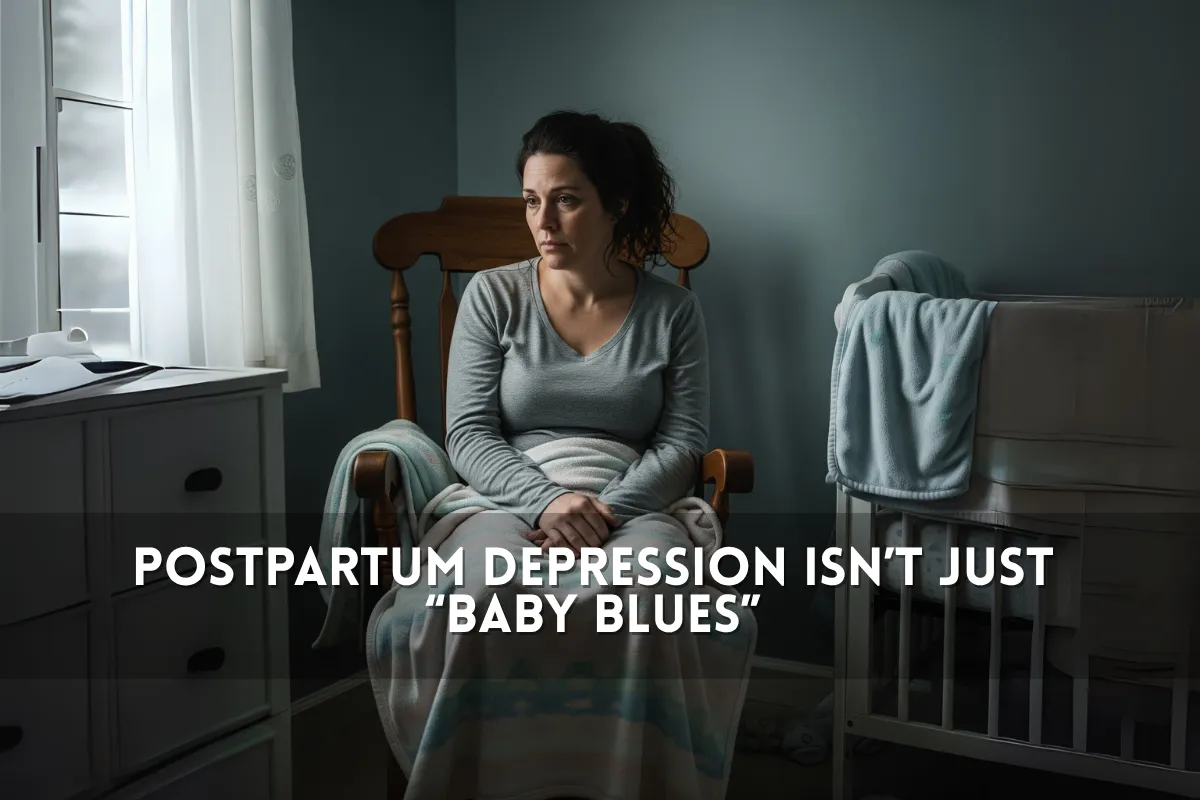
Postpartum Depression Isn’t Just “Baby Blues”—It’s Hormonal, It’s Real, and It’s Treatable
Postpartum Depression Isn’t Just “Baby Blues”—It’s Hormonal, It’s Real, and It’s Treatable
So you’ve had the baby. Everyone expects you to feel over-the-moon in love, blissfully bonding, glowing with maternal joy. But instead? You feel flat. Sad. Anxious. Maybe even angry, numb, or scared of your own thoughts. If this sounds familiar, you are not alone—and you are not broken.
Let’s talk about postpartum depression (PPD). Not in hushed tones. Not with shame. But with truth.
Because the mental and emotional changes that follow birth aren’t just about “adjusting to motherhood”—they are driven by some of the most extreme hormonal shifts the human body ever goes through.
What Causes Postpartum Depression?
While there’s no single cause, the postpartum period is a perfect storm of hormonal, physical, emotional, and lifestyle upheaval:
Estrogen and progesterone levels plummet dramatically in the first 24–72 hours after childbirth—dropping from pregnancy-high levels to almost menopausal lows in a matter of days.
Sleep deprivation, nutrient depletion, and the physical trauma of labor weaken your resilience.
Oxytocin (the “love hormone”) is high at birth but may not sustain without consistent support and connection.
If you had a traumatic birth, fertility struggles, or prior mental health issues? Your risk is even higher.
So no—this isn’t just about being tired or overwhelmed. It’s your neurochemistry in freefall.
How to Tell the Difference Between "Baby Blues" and PPD
Nearly 80% of new moms experience mood swings, irritability, or crying spells in the first few weeks after birth—that’s the baby blues. It’s normal, and it usually passes on its own.
But postpartum depression is deeper and lasts longer. Here’s what to watch for:
Persistent sadness, emptiness, or disconnection
Loss of interest in things you used to enjoy
Irritability, rage, or unexplained anxiety
Trouble sleeping—even when the baby is sleeping
Guilt, shame, or feeling like a “bad mom”
Thoughts of harming yourself or your baby
A sense that you’re not bonding with your child
Feeling hopeless or unable to function
If these symptoms last more than two weeks or are intensifying, it’s time to get help. Not because you’re weak—but because you deserve support, and your brain needs repair.
The Hormone Link No One Tells You About
Let’s dig into the biology:
Estrogen is a powerful modulator of serotonin—the brain’s mood stabilizer. When estrogen crashes postpartum, serotonin follows. This alone can trigger mood instability, sadness, or even rage.
Progesterone supports GABA, the calming neurotransmitter that helps you sleep, feel safe, and stay centered. When it tanks after delivery, anxiety, restlessness, and sleep problems often skyrocket.
Thyroid function can shift postpartum, sometimes triggering autoimmune thyroiditis or hypothyroidism—both of which can look like depression.
If you’ve never had a mood disorder before, the postpartum hormonal collapse can expose previously silent imbalances. And if you already struggled with anxiety or depression pre-pregnancy? PPD can hit like a tidal wave.
Treatment That Gets to the Root
You don’t need to suffer through this silently. And you don’t have to “snap out of it.”
Here’s what truly helps:
✅ Psychotherapy—especially cognitive behavioral therapy (CBT) or interpersonal therapy (IPT)
✅ Antidepressants, if symptoms are moderate to severe (many are safe during breastfeeding)
✅ Bioidentical hormone therapy (BHRT)—especially low-dose estrogen or progesterone to stabilize mood (best when used under supervision in the early postpartum period)
✅ Thyroid testing and support—to rule out or treat postpartum thyroid shifts
✅ Sleep, nutrition, support—not just “self-care,” but nervous system nourishment
✅ Community—you were never meant to do this alone
You’re Not a Bad Mom—You’re a Human with a Hormone-Driven Brain
If you’re struggling, know this: postpartum depression is not a failure—it’s a physiological response to massive hormonal, emotional, and physical change.
You can feel better. You will feel better. But don’t wait for it to “go away on its own.” Let’s treat the root, not just the symptoms.
👉 Book your hormone consult at getmerva.com
👉 Let’s look at your hormone levels, thyroid, stress response, and emotional health—and get you the support you need to heal and thrive.


